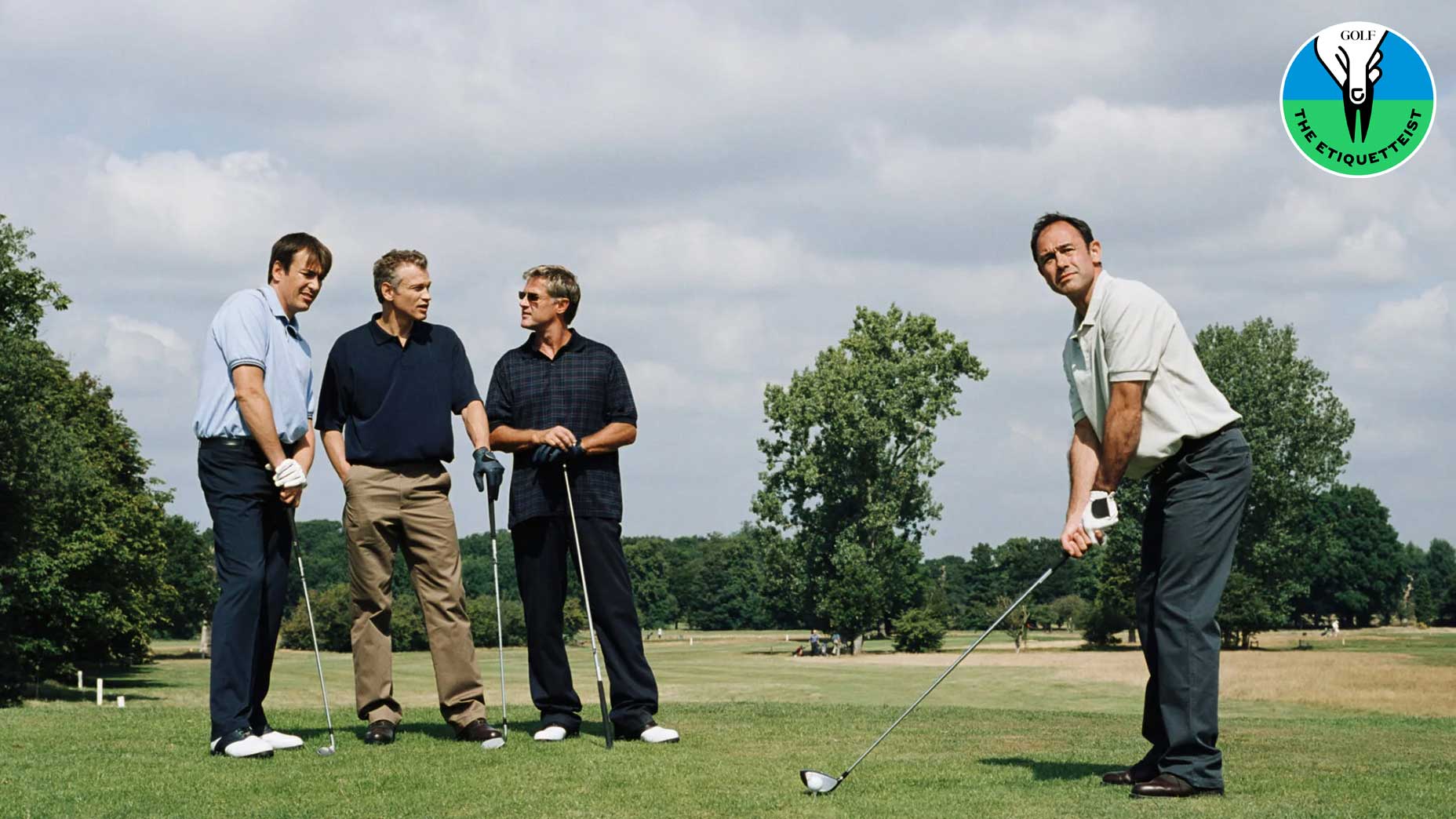
How long should it take you to play a round of golf? The expectations may vary from one course to another, but here’s what you should know.
Getty Images
Mark from Boise asks: If my buddies and I are the first group out in the morning, how fast should we expect to play?
Dear Mark:
Some years ago, the Etiquetteist stepped to the first tee of a small-town course in Ireland and was greeted with a sign that read: Three hours and fifteen minutes is enough!
Even more than the Blarney Stone, that placard deserved a kiss.
It has long been the Etiquetteist’s belief that four-hour rounds are excessive and unnecessary, regardless of skill level, assuming that you are able-bodied and not stuck behind Patrick Cantlay. Hit it, find it and be ready to hit it again when it’s your turn, and you should be done in less time than most Scorcese films, without having to rush.
Others in the industry share that conviction. There is even an organization, the Three45 Golf Association, founded by the pace-of-play guru Lou Riccio and named for what he regards as the desired duration of a round, though matters aren’t quite as simple as that makes them sound.
As Riccio is quick to point out, pace of play is a complex metric that depends not just on golfer behavior but on course management and setup. Compress tee times to six-minute intervals on a 7,000-yard layout lined with water hazards and penal rough, for instance, and you’ll be lucky if anyone finishes before sunset, much less in under four hours.
To help account for such variables, the USGA has a pace-rating system that calculates how long it should take to play a hole (this is also known as time par) based on its length and difficulty. But not all courses have established a time par, and of those that have, not all enforce pace equally. Dealing with the paying public can be tricky. Until about two years ago, for example, the range balls at Pebble Beach were emblazoned with large numerals — 4:30 — indicating the desired pace of play. But enough golfers griped (some because they didn’t want to play that fast; others because their rounds wound up taking longer than that) that the resort did away with the 4:30 messaging. The range balls at Pebble now say “Ready golf.”
That’s a good goal no matter where or when you’re playing — but especially as the first group out. In that position, you have tacitly agreed to be the pace-setter and you should be ready to breeze around the course before the starter has finished his or her second cup of coffee. Well, maybe not that quickly — because you should also be mindful not to play on the heels of the morning maintenance crew — but you best not hold anybody up, or you’ll risk setting off a chain reaction of slow play that will ripple through the tee sheet throughout the day. If you’re aren’t ready or willing to fill the role of rabbit, you should book a later time.
Back to your question, though: how fast, exactly, should you plan to play? There is no set rule, and it’s not always entirely up to you. But if you’re worried, it doesn’t hurt to ask the starter or the pro shop staff to outline the official expectations. If their answer is “somewhere around four hours,” they’re probably being honest, though the Etiquetteist wouldn’t blame them if they were also thinking “three hours and fifteen minutes is enough.”








